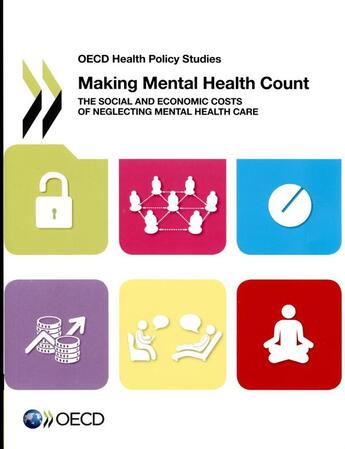-
Date de parution : 08/11/2014
-
Editeur :
Ocde
-
EAN : 9789264208438
-
Série :
(-)
-
Support :
Papier
Résumé:
Despite the enormous burden that mental ill-health imposes on individuals, their families, society, health systems and the economy, mental health care remains a neglected area of health policy in too many countries. Mental disorders represent a considerable disease burden, and have a significant... Voir plus
Despite the enormous burden that mental ill-health imposes on individuals, their families, society, health systems and the economy, mental health care remains a neglected area of health policy in too many countries. Mental disorders represent a considerable disease burden, and have a significant impact on the lives of the OECD population, and account for considerable direct and indirect costs. This report argues that even in those OECD countries with a long history of deinstitutionalisation, there is still a long way to go to make community-based mental health care that achieves good outcomes for people with severe mental illness a reality. The disproportionate focus on severe mental illness has meant that mild-to-moderate mental illnesses, which makes up the largest burden of disease, have remained overwhelmingly neglected. This book addresses the high cost of mental illness, weaknesses and innovative developments in the organisation of care, changes and future directions for the mental health workforce, the need to develop better indicators for mental health care and quality, and tools for better governance of the mental health system. The high burden of mental ill health and the accompanying costs in terms of reduced quality of life, loss of productivity, and premature mortality, mean that making mental health count for all OECD countries is a priority.
Donner votre avis
















